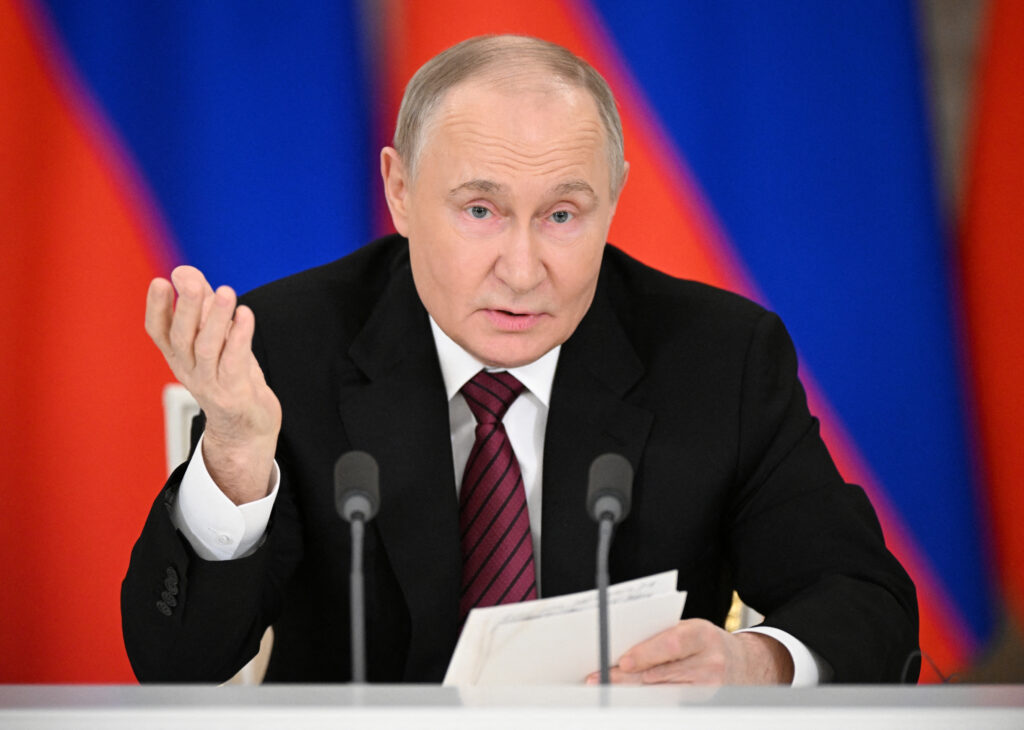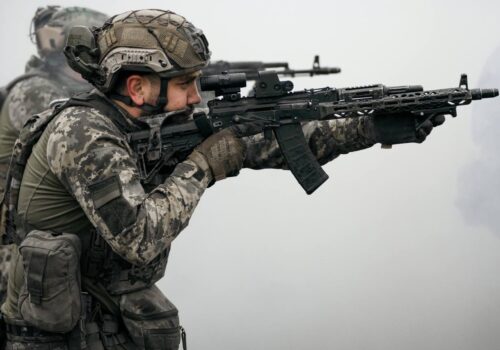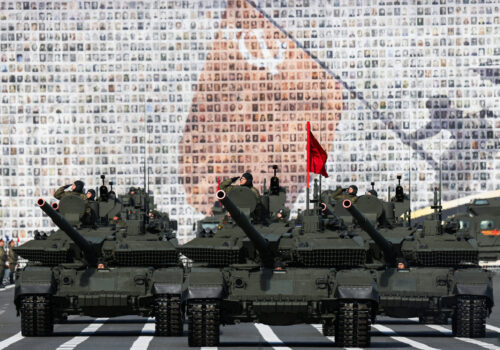The leaders of Britain, France, Germany, and Poland arrived in Kyiv last weekend amid much fanfare to deliver an unprecedented ultimatum to the Kremlin. The time for talk was over, they announced. If Russian President Vladimir Putin did not agree to an unconditional 30-day ceasefire by Monday, he would face tough new sanctions and increased weapons transfers to Ukraine. “All of us here, together with the US, are calling Putin out. If he’s serious about peace, then he has a chance to show it now,” declared British Prime Minister Keir Starmer.
For a brief moment, it seemed possible that this bold move could revive faltering peace efforts. After all, if Putin agreed to a ceasefire, the way would be open for more substantive negotiations. If he refused, the West would now be obliged to turn up the pressure on Moscow and force Russia to rethink its position. Putin, however, had other ideas. At a hastily arranged midnight press conference in the Kremlin, he chose not to directly address the West’s ultimatum, and instead proposed bilateral talks with Ukraine.
Putin’s announcement that he was ready to resume negotiations with the Ukrainian authorities for the first time since the initial months of the war succeeded in overshadowing Saturday’s ultimatum. It also undermined any fleeting sense of Western unity and decisiveness. Predictably, US President Donald Trump was the first to break ranks, posting a statement urging Ukraine to “immediately” accept Putin’s offer in order to determine whether a peace deal is actually possible.
Elsewhere, confusion reigned. Was the original ultimatum still in place? There seemed to be no clear answer. In Berlin, German officials stated on Monday that “the clock is ticking,” but then took no action when their subsequent midnight deadline came and went. Meanwhile, according to Bloomberg, the Kyiv quartet quietly decided to wait until after a potential Russia-Ukraine meeting on Thursday in Istanbul before taking any action. This was the exact opposite of US President Theodore Roosevelt’s famous foreign policy advice to “speak softly and carry a big stick.” European leaders had instead opted to speak very loudly while carrying no stick at all.
Stay updated
As the world watches the Russian invasion of Ukraine unfold, UkraineAlert delivers the best Atlantic Council expert insight and analysis on Ukraine twice a week directly to your inbox.
Putin’s evasive response to last weekend’s ceasefire ultimatum was wholly in line with his elusive approach to the entire US-led peace process. Since tentative talks first began in February, Putin has consistently voiced his support for peace. At the same time, he has offered endless excuses and presented a long list of additional demands that make genuine progress toward a peaceful settlement of the war virtually impossible. At one point, he even questioned the legitimacy of the Ukrainian authorities and suggested the country should be placed under United Nations administration.
In contrast, Ukraine has demonstrated a readiness to make compromises in the interests of peace. Kyiv has acknowledged that any negotiated settlement will likely leave Russian-occupied regions of Ukraine under de facto Kremlin control, and has backed a US proposal for a 30-day unconditional ceasefire. It came as no surprise on Sunday when Ukrainian President Volodymyr Zelenskyy promptly agreed with Trump’s call to accept the Russian offer of bilateral talks. In the current climate, even the most obtuse of observers cannot help but conclude that Putin is now the main obstacle to peace.
Eurasia Center events

It remains theoretically possible that this week’s proposed bilateral talks will lead to some kind of breakthrough, but past experience suggests there is very little prospect of any real progress. On the contrary, negotiations are far more likely to end inconclusively, with the Russian delegation offering up just enough false hope to justify yet another round of time-consuming meetings. The real question is how long Putin will be allowed to continue engaging in stalling tactics before Western patience finally runs out.
It should be obvious by now that Putin has no genuine interest in ending the war. He refuses to offer any meaningful concessions and continues to insist on maximalist peace terms that would leave postwar Ukraine partitioned, disarmed, isolated, and defenseless in the face of future Russian aggression. It does not require much imagination to anticipate exactly what Putin has planned for Ukraine if his conditions are met.
Anyone who thinks Putin is willing to compromise over Ukraine clearly does not understand his profoundly revisionist worldview or his imperial ambitions. While Western leaders speak about the need for diplomatic dialogue and mutual concessions, Putin himself views the current invasion in far more existential terms as an historic mission to reverse the Soviet collapse and revive the Russian Empire.
The Russian leader is perfectly happy to entertain the idea of negotiations in order to buy time and weaken Western resolve, but in reality he has no intention of stopping until Ukrainian statehood has been extinguished. Trump has made a legitimate effort to broker a generous peace, but the time has now come to acknowledge that Putin is not negotiating in good faith and will only respond to the language of strength.
Peter Dickinson is editor of the Atlantic Council’s UkraineAlert service.
Further reading
The views expressed in UkraineAlert are solely those of the authors and do not necessarily reflect the views of the Atlantic Council, its staff, or its supporters.

The Eurasia Center’s mission is to enhance transatlantic cooperation in promoting stability, democratic values, and prosperity in Eurasia, from Eastern Europe and Turkey in the West to the Caucasus, Russia, and Central Asia in the East.
Follow us on social media
and support our work
Image: Russian President Vladimir Putin gives a statement to the media at the Kremlin in Moscow, Russia. May 11, 2025. (Sergey Bobylev/Host agency RIA Novosti/Handout via REUTERS)




